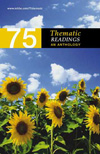
bell hooks |  |
bell hooksbell hooks, "Keeping Close to Home: Class and Education" bell hooks (1952- ) was born under the name Gloria Watkins in Hopkinsville,
Kentucky. She earned a B.A. in 1973 from Stanford University, an M.A.
from the University of Wisconsin, Madison in 1976, and a Ph.D. in 1983
at the University of California, Santa Cruz. hooks has taught at the University
of California, Los Angeles, the City College of New York, and Yale University.
She chose her pen name in honor of her great-grandmother, and often writes
about feminist, class, and black women's issues. Her books include Feminist
Theory: from margin to center (1984), Talking Back: thinking feminist,
thinking black (1988), and Wounds of Passion: a writing life
(1997). Her work also appears in periodicals such as Postmodern Culture,
Shambhala Sun, and Callaloo. "Keeping Close to Home:
Class and Education" illustrates her inclusive, non-academic style,
and is an excerpt from Talking Back. | QUESTIONS FOR DISCUSSION | CONTENT - How does hooks characterize life in a small town?
- What do the author and her mother talk about before the bus arrives?
How is their conversation interrupted?
- According to the author, how did most people treat class differences
at Stanford?
- How does the author's colleague from Yale react when hooks addresses
black people on the street she doesn't know?
- Describe the reaction of the "white female academics" to
the talk hooks gave at Northwestern. How did hooks react to their reaction?
- How did hooks's parents feel about her acceptance to Stanford? Why
did she want to go there and not to a local college?
- According to hooks, what is the central difference between black
and white notions of private property?
STRATEGY AND STYLE - What is hooks's argument here? Outline her main points and types
of support for each in as much detail as you can.
- Study the spot in paragraph six where the author compares herself
to a Mormon student. What's the nature of the comparison? How can you
tie it in with the author's feelings about her belief system?
- Go through the essay and make note of the author's use of the word
folks. How would the essay change if she used a synonym for this
word? What synonym do you have in mind? How can you relate this usage
with the author's ideas about class and community?
- Most of the dialogue in this essay is in the voice of people from
the author's birthplace, Kentucky. What does this decision reveal about
hooks's ideas about class and language?
| ENGAGING THE TEXT | - How class conscious are you? Do you confront class barriers when
you encounter them, or do you prefer to overlook them? What did you
think about in this regard when you read this piece?
- Recall a time someone made an assumption about you based upon your
cultural background. How did it make you feel? What did you do about
it? How can you relate your feelings and your reaction to your reading?
| SUGGESTIONS FOR SUSTAINED WRITING | - The author "raises the issue of whether or not the academic
setting is a place where one can be truly radical or subversive."
Drawing upon your reading and your own experiences in college, address
this issue. What are some of academia's limiting forces upon radical
and subversive behavior?
- hooks closes this piece by calling for educators to expand their
"definitions of home and community." Paying close attention
to the introduction, explain how hooks has expanded her definition
of home and community throughout this essay.
| FOR FURTHER RESEARCH | Based upon your readings and one further source by each author, discuss
the author's differences with Richard Rodriguez's view about maintaining
family and cultural ties. What role does language play here? | WEB CONNECTION | Read this book
review for Feminism is for Everybody: Passionate Politics.
What did you learn about the book from reading the review? What points
mentioned in the reviews would you have to consult the book itself to
find out? | LINKS | Biographical This is a very good general start
page at the Voices From the Gaps site. There, you'll find
photos of hooks and book covers, a biography, a bibliography, and related
links. Here's a brief biography,
photo, some links, and a bibliography. What are a few of the major differences
between this page and the one above? This page, prepared
by the organizers of a talk she gave, contains a portrait of hooks and
some other biographical information.
Bibliographical The author discusses the politics of literacy in this interview
conducted for the journal JAC in 1994. Ready for some more work by hooks? Like to use etext? Here's an
essay
called "Postmodern Blackness" which originally appeared in
Postmodern Culture. Interested in pursuing the author's views about capitalism and
patriarchy? Check out this interview
in which hooks discusses these issues at some length.
Cultural Would you like to put hooks's work into a broader cultural and
political context? Study this page
of suggested readings for black feminists and you'll be on your way. You probably know that bell hooks is a pen name. Curious about
some other famous ones? Click over to this list
and see how many you recognize. This page
contains a review and some other information about bell hooks onVideo: Cultural Criticism & Transformation. Can you tell
if your library has a copy using the computer you're working on now?
|
|
|
|